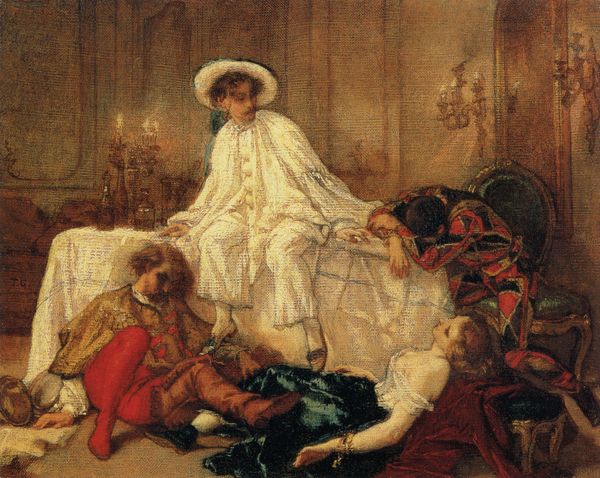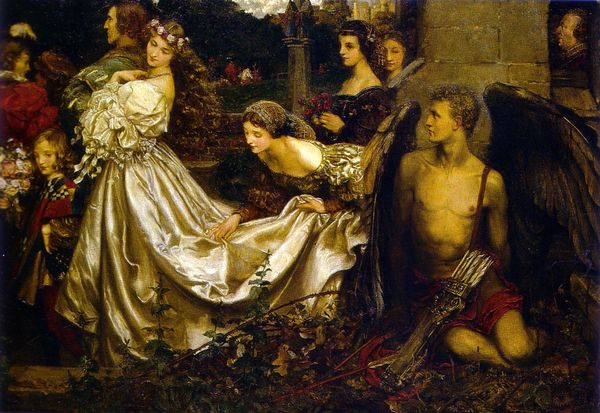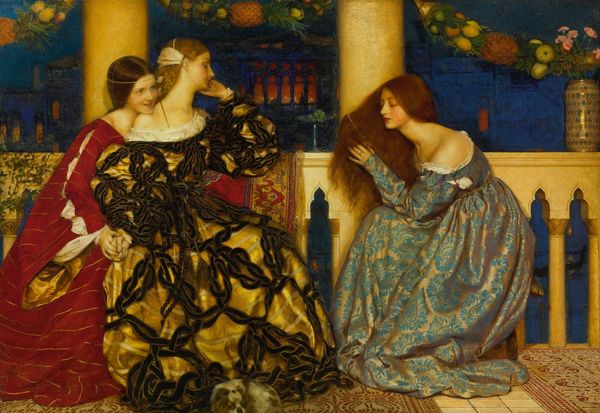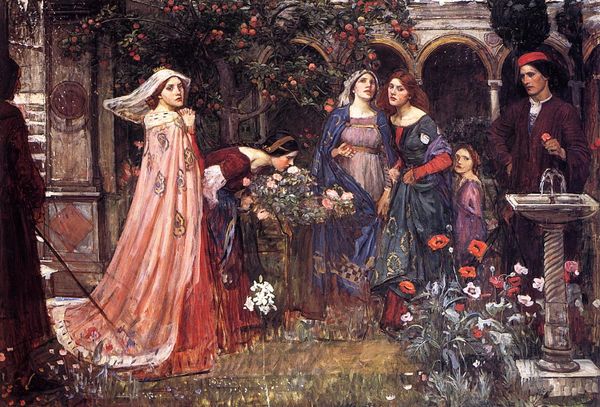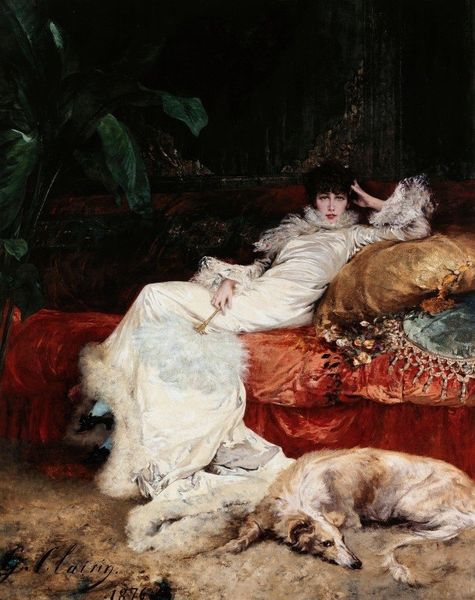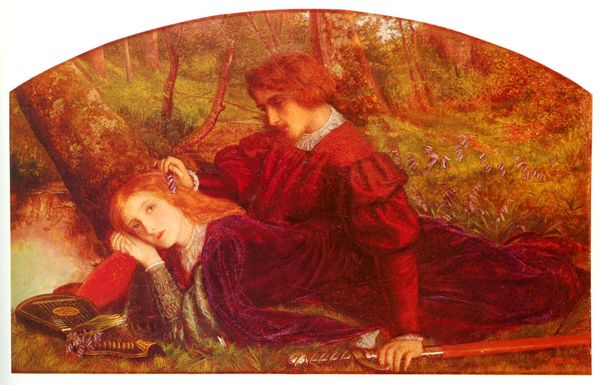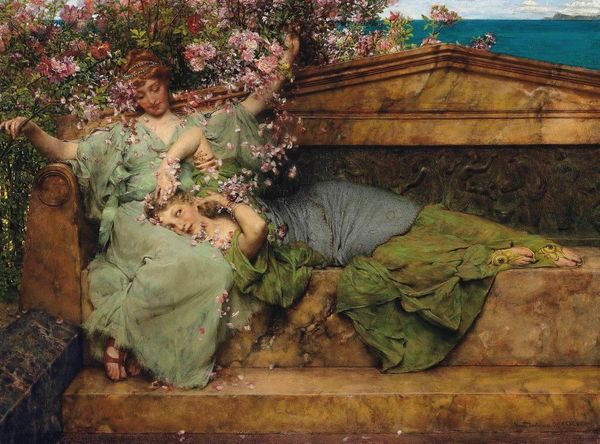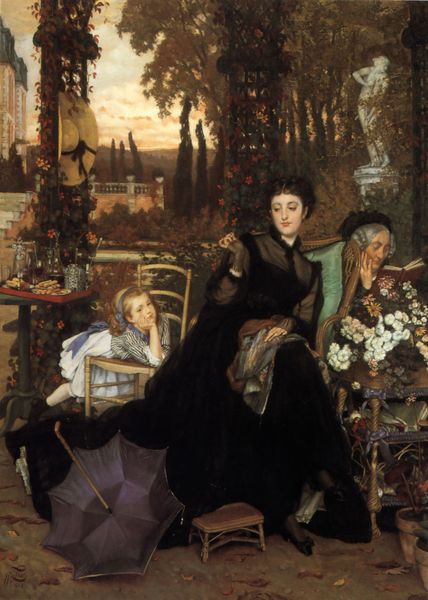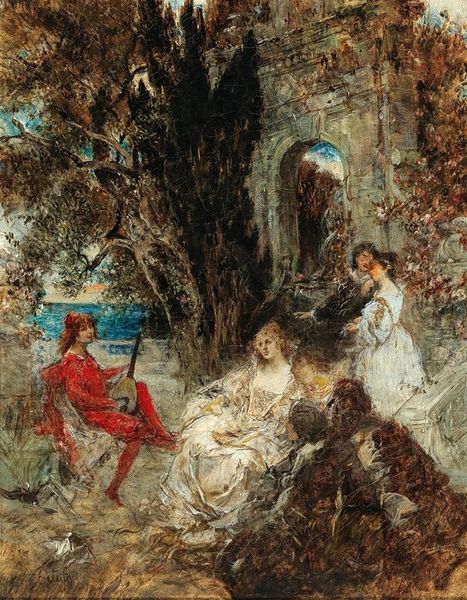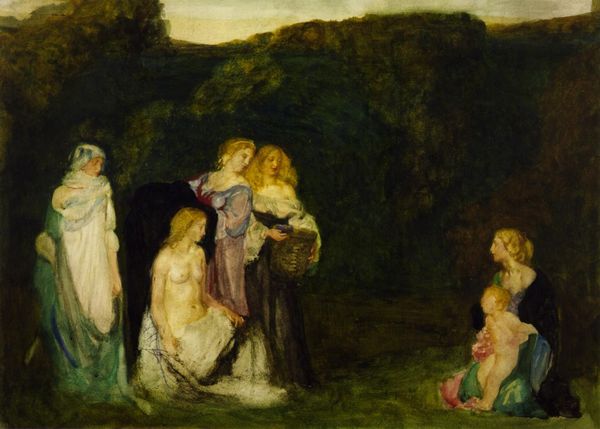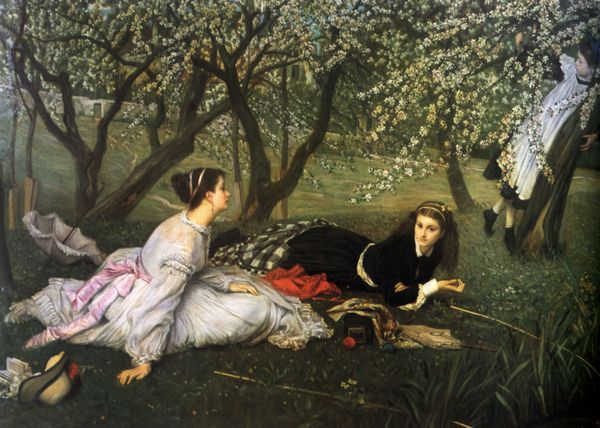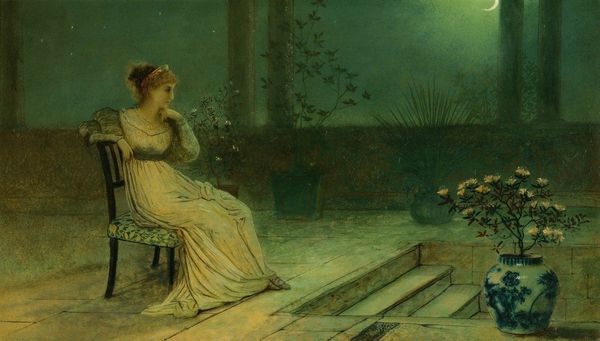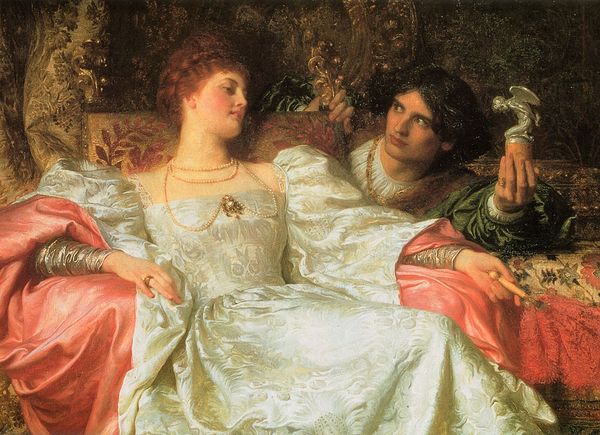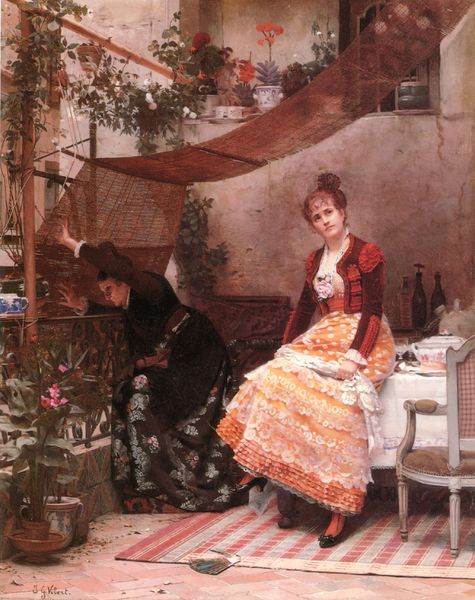
#
abstract painting
#
possibly oil pastel
#
oil painting
#
fluid art
#
acrylic on canvas
#
underpainting
#
painterly
#
painting painterly
#
painting art
#
watercolor
Copyright: Public domain
Curator: Welcome. We're looking at Eleanor Fortescue-Brickdale's "The Deceitfullness of Riches," painted in 1901. Editor: The painting has this very hazy, dreamlike quality, almost like looking through frosted glass. I am drawn to the composition with all of these figures enclosed by roses and flora. Curator: Brickdale was part of a wave of women artists navigating complex societal expectations at the turn of the century. This work can be viewed through the lens of emerging feminist discourse, critiquing the opulent lifestyle of the upper classes and its impact on women. Notice how some figures are idle, caught in quiet interactions. It feels claustrophobic. Editor: I see what you mean about that claustrophobic feeling; however, consider the textures and colour! Look at the way light filters through those richly decorative gowns; the details in the peacock feathers draw the eye through the lower register of the piece. Curator: The very deliberate arrangement of these figures within this enclosed, ornamental space suggests a kind of gilded cage, reflecting how social structures can trap individuals, particularly women, within predefined roles. Observe that some are actively looking on, as though scheming. Editor: I see that contrast you are pointing out, but look at how Brickdale contrasts the heavier textures of the clothing of some figures in the painting with the light skin of the central figure. The treatment of colour is key here. Note too how these techniques seem reminiscent of pre-Raphaelite sensibilities. Curator: Absolutely, and within the context of the Pre-Raphaelites and their return to medieval and early Renaissance forms, the scene could be read as a critique of Victorian consumerism, where beauty masks a deeper moral decay. The "riches" in the title becoming symbolic of superficial values and ultimately, social injustice. Editor: So while you connect it to Victorian morality and the role of women, I see it as this visually interesting arrangement of contrasting patterns, of layered colour, creating an intimate space to hold all the complexities it portrays. Curator: I think exploring both of these layers—the historical context and formal elements—offers a more thorough and enriching encounter with "The Deceitfullness of Riches". Editor: Indeed. Considering this piece from both standpoints creates a more meaningful art experience.
Comments
No comments
Be the first to comment and join the conversation on the ultimate creative platform.
